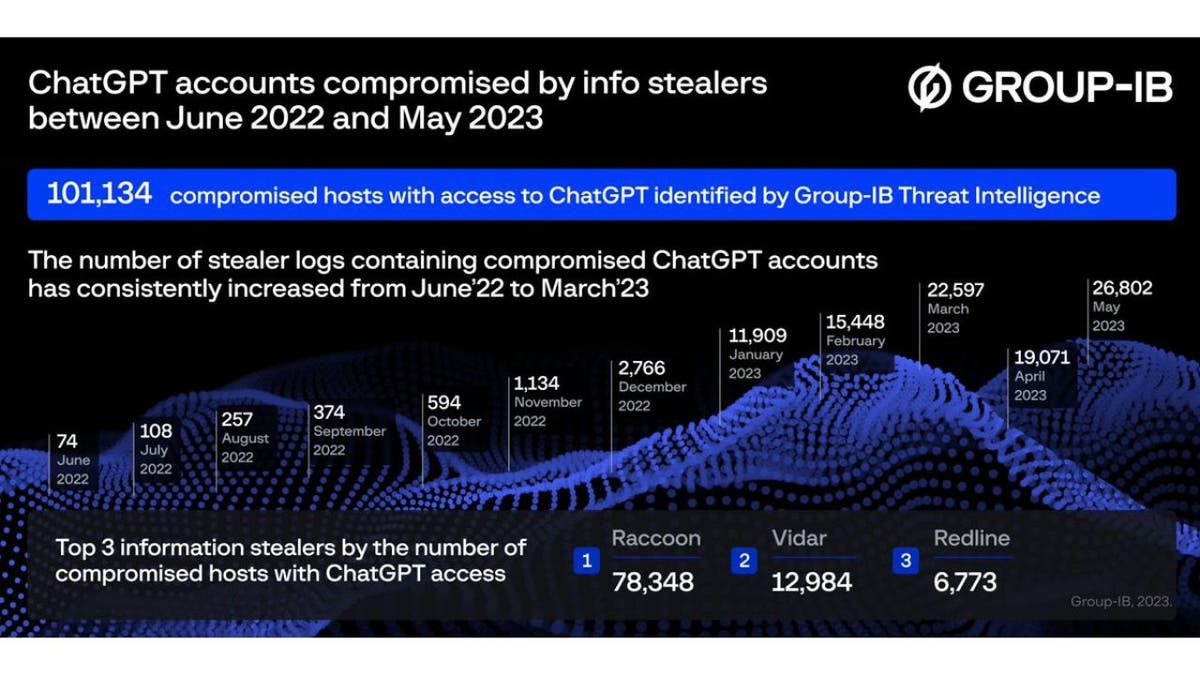The rise of artificial intelligence (AI) brings both exciting opportunities and unforeseen challenges. The popular chatbot ChatGPT, while revolutionizing how we interact with technology, has also become a target for cybercriminals. Recent reports reveal a disturbing trend: stolen ChatGPT accounts are being traded on the dark web, raising concerns about data security and privacy in the age of AI.
According to cybersecurity firm Group-IB, over 100,000 compromised ChatGPT logins have surfaced in underground marketplaces. A significant portion of these stolen credentials originate from the Asia-Pacific region, with India unfortunately leading the count. The United States also features prominently on the list, underscoring the global nature of this threat. This illicit trade highlights the vulnerability of online accounts, even those associated with cutting-edge AI platforms.

Access to a ChatGPT account provides hackers with a trove of information, including past conversations and potentially sensitive data shared by users. While OpenAI, the company behind ChatGPT, is not directly responsible for these breaches, the incidents emphasize the importance of individual security practices. Malware remains a primary tool used to steal account credentials, often lurking in deceptive links, infected attachments, or exploiting vulnerabilities in outdated software.

Protecting your ChatGPT account and broader digital identity requires vigilance. Here are some key steps to enhance your security:
- Disable Chat History: Within ChatGPT's settings, disable chat history to prevent long-term storage of your conversations. Note that OpenAI may retain conversations for a limited time for abuse monitoring.
- Clear Existing Conversations: Regularly clear your ChatGPT conversation history to minimize the potential impact of a breach.
- Strong Passwords and 2FA: Use strong, unique passwords for all online accounts, including ChatGPT. Enable two-factor authentication (2FA) for added protection.
- Software Updates: Keep your operating system, antivirus software, and other applications updated to patch security vulnerabilities.
- Phishing Awareness: Be wary of suspicious emails, links, and attachments. Avoid clicking on anything that seems questionable.
- Monitor Accounts: Regularly review your bank and credit card statements for unauthorized activity.
- Consider Identity Theft Protection: Explore identity theft protection services that can monitor your personal information and assist with recovery in case of a breach.

The emergence of AI presents new security challenges, and the theft of ChatGPT accounts serves as a wake-up call. By adopting proactive security measures, users can mitigate risks and enjoy the benefits of AI while safeguarding their digital lives.








